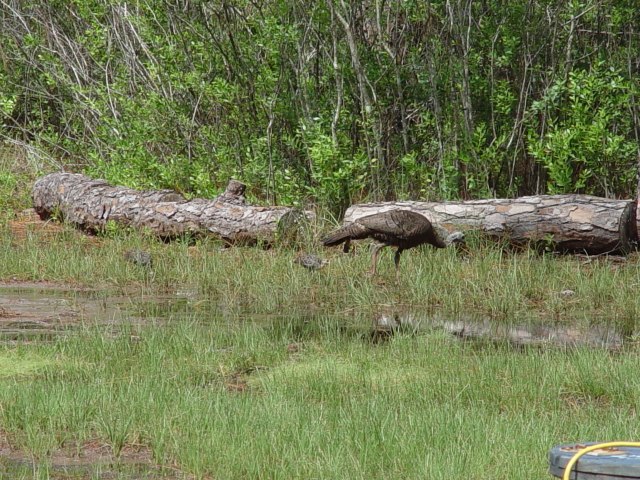MassHunter2190
New member
Ok well today we got about 3 inches of rain in 30 minutes followed by another hour of drizzling rain with very strong winds thrown in there. After the storm ended I was out driving around checking out the damage to the tobacco and kept seeing turkeys in about every hay field I passed. I probably saw 6 different flocks in a 20 minute period. Then when I got home I looked across the road to see two more turkeys. I got out my spotting scope and saw that they were both hens and later counted 17 chicks (term?) following them! (Yay!)
So my question is...why do turkeys go out into the open after rain?
I've been searching the net for quite a while now, (hence why I'm writing this so late), and haven't really found a straight answer as to why they tend to do this. Although one guy did say something about they feel more vulnerable in the rain so they go into the open where they have a better chance at seeing predators.
Anybody have a answer to this?
P.S- Not that anyone cares, but the highlight of the day was definetly when I was picking up branches around the house with the Polaris Ranger and spotted a woodchuck in my christmas tree patch. Needless to say, I beat him to his burrow! (Squish crunch crunch flop flop thud)
So my question is...why do turkeys go out into the open after rain?
I've been searching the net for quite a while now, (hence why I'm writing this so late), and haven't really found a straight answer as to why they tend to do this. Although one guy did say something about they feel more vulnerable in the rain so they go into the open where they have a better chance at seeing predators.
Anybody have a answer to this?
P.S- Not that anyone cares, but the highlight of the day was definetly when I was picking up branches around the house with the Polaris Ranger and spotted a woodchuck in my christmas tree patch. Needless to say, I beat him to his burrow! (Squish crunch crunch flop flop thud)

